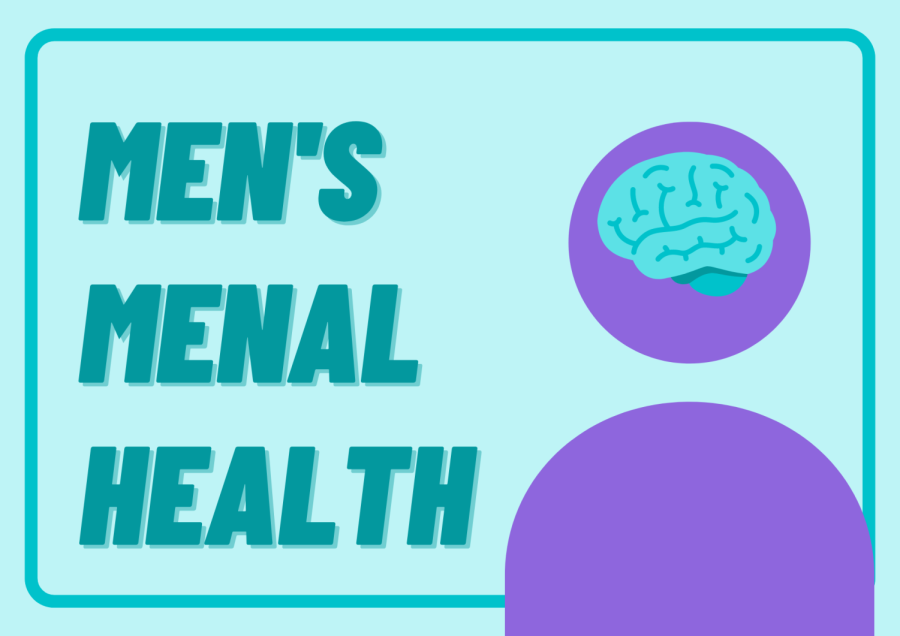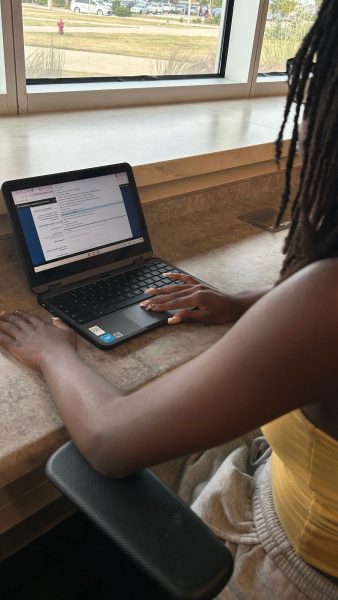Men’s Mental Health
How defamation and stereotyping can contribute to mental illness in men.
Many men could go their whole lives not knowing they’re depressed. Society has trained men to numb their emotions. When women and girls are sad, they’re often treated with empathy and grace, but when men express sadness, they’re often told to “be a man” or “toughen up.” This mentality shows a clear problem in our society.
According to BMC Psychiatry, death rates from suicide are four to five times higher for men than women. Several factors could contribute to this alarming number. The lack of mental health resources for men, stereotypes directed at men involving assault and masculinity, and how men interact with each other are major causes of the issue.
The world often sees men as the protectors. They’re seen as strong and powerful, and women are often seen as weaker or dependent. This can be a big problem not only for strong women who may want positions in power but also for men who feel they don’t fit their stereotyped role or don’t want to be “leaders”.
Stereotypes against men are a huge problem in our society. Though younger generations have created more opportunities for men to be open about their feelings without feeling weak, many people still hold a toxic view of gender roles.
Younger generations have done better at emphasizing men’s mental health than the previous generations, but we can’t stop with Instagram threads. Actions towards boys and men as a whole and how we view them speaks louder than anything else. It may seem obvious, but we need to remember men are people and have emotions too.
Younger generations are doing a good job at increasingly seeking help for mental illness. People today have done more to advocate for the mental health of men especially, as well as breaking stereotypes in place.
“I think we have definitely made a jump on it here. There are more signs around the school, more awareness to everyone else, and ultimately it has been a lot better in the past months at school,” shares Brunk.
The school has added a QR code on the back of student IDs that students can scan for resources. The code will take students to the support page on the ICCSD website. The support page has several numbers students can call, as well as lists of staff in schools they can talk to if they’re in need of assistance. But we can’t stop here. Mental illness doesn’t end at inspiring quotes or good conversations. As a community, we need to stand together to help each other out and provide a loving and safe environment for women and men struggling with their mental health.
How can you help? If you suspect someone could be struggling, reach out. If you’re really worried about the well-being of someone, and they aren’t doing anything to help themselves, make sure to be there for them, and if needed, reach out to someone else. If you are struggling, Talk to your parents, guardians, or another adult about your options. If you have a close friend you feel comfortable enough to reach out to, talk to them about it. They may be struggling with similar issues. Mental Illness is complicated, and there’s no real “fix” but there are many options that can help.

Jordyn is a senior at Liberty, this is her second year in Journalism. Outside of school, Jordyn enjoys shopping, exploring new places, and spending time...

Kaelyn is a senior at Liberty, and this is her third year on the Live Wire staff. At Liberty, she participates in NHS, garden club, SEA club, and softball....








